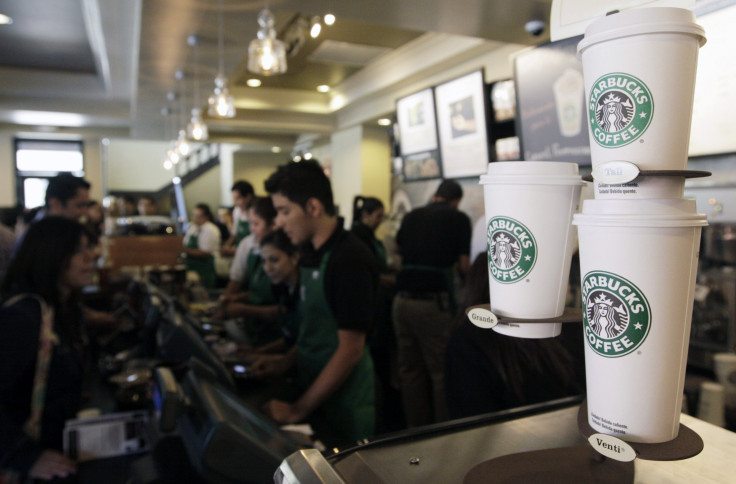Starbucks (SBUX) Coffee: Unpopular In Europe, Africa & The Middle East In 2013, But That May Change

Despite strong earnings and a record financial year overall for Starbucks Corporation (NASDAQ:SBUX), company earnings from Wednesday afternoon showed that it fared badly in Europe, Africa and the Middle East in 2013.
From October 2012 to 2013, sales did not grow in the Europe, Middle East and Africa region, said the company. That zero percent growth compares with 7 to 9 percent sales growth in the Americas and Asia Pacific, including China, and was accompanied by a 2 percent decline in average customer spending per visit.
Starbucks also only expects to open 150 stores in the region over the coming year, compared to 600 in the Americas and 750 in its China Asia Pacific area.
In its fiscal fourth quarter, the world’s best known coffee shop opened 5 fewer stores in EMEA than the year before, and added only 28 stores, compared to 340 added in the Americas.
The company doesn’t break out results for sales by country or even continent, so it’s unclear if it is the Europeans or Africans who are struggling with the taste of Starbucks’ $4 billion brand. The company didn’t immediately return a request for comment by IBTimes.
Europe is primarily responsible for the weakness there, said Wedbush Securities analyst Nick Setyan to IBTimes.
Weaker sales there are not surprising, he continued.
“The region has always been the one that’s gotten the least amount of traction,” he said. “They imported the European coffee concept to the USA, and it works in Asia, but Europeans have their own sort of tradition.”
Setyan said, though, that a new model of franchising and licensing stores is on track to improve profitability there nicely.
On a conference call company executives said the UK, its strongest market in that business unit, is performing solidly.
“An early turnaround in EMEA may be underway,” said Starbucks CEO Howard Schultz.
Company chief financial officer Troy Alstead said that Starbucks has improved its performance in Europe, Middle East and Africa over the past two years, and that its Middle Eastern and Russian markets are performing well.
Starbucks closed 72 “underperforming” stores and relicensed 24 others, said Alstead on the call. Those store strategies helped boost operating margins, according to company filings.
The company cited a “challenging macro environment” as leading to low 2 percent sales growth in EMEA in its latest quarter. 129 net new stores were opened in EMEA in the past 12 months, helping to drive revenue.
Setyan expects fiscal year 2014 to be better than the past year, with comparable sales store growth of 2 percent in the EMEA region.
Analysts focused mostly on Starbucks strong earnings beat, where company executives said a strong fourth quarter topped “without question” the best year in Starbucks’ 42 year history.
Starbucks sales in China also slowed in the fourth quarter, about 1 percent lower than the third quarter and average analyst expectations, according to Bloomberg.
© Copyright IBTimes 2024. All rights reserved.






















